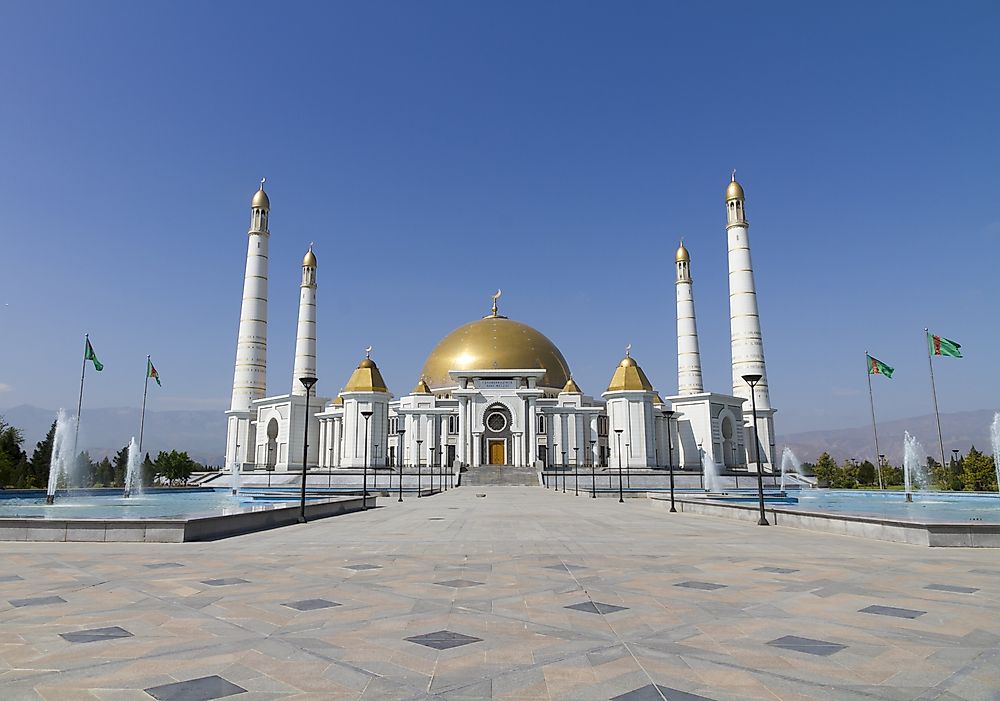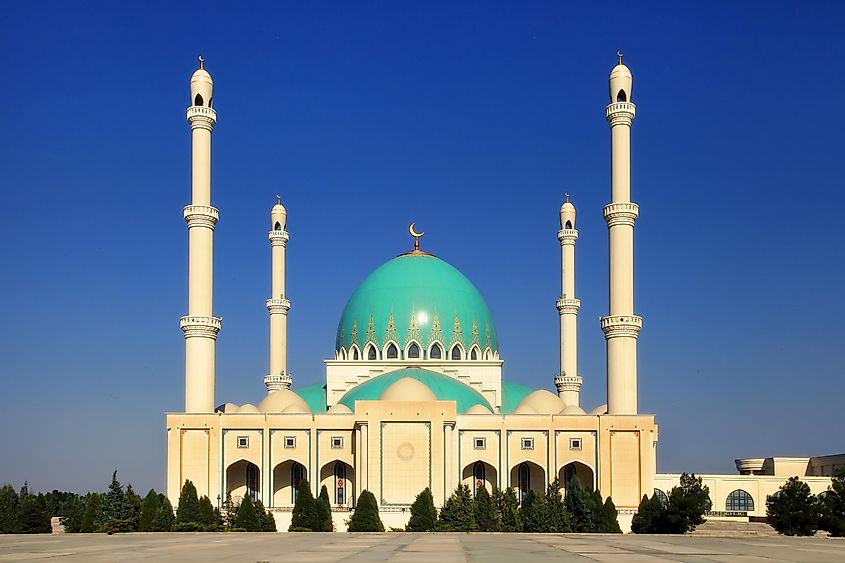Have you ever wondered about the spiritual life of people in countries like Turkmenistan? It's a place that, in a way, often sparks curiosity for many. Figuring out what faith means to a whole country can be a bit like piecing together a big puzzle, you know? It asks us to look closely at history, culture, and what people believe.
Getting a clear picture of religious belief in any nation, including Turkmenistan, means looking at how information about faith is gathered. Researchers, for example, often use different ways to collect details. This helps them get a better sense of what people think and practice, so it's a pretty big deal.
When we talk about religion in places far away, it's pretty interesting to see how major groups like the Pew Research Center go about their work. They spend time figuring out how to ask questions in surveys so they can really learn about what people believe and how they live their faith. That, in some respects, gives us a window into a country's soul.
Table of Contents
- Understanding Faith Through Surveys
- Turkmenistan and the Global Religious Picture
- The Variety of Religious Expression
- How Researchers Study Belief Systems
- Observance and Knowledge in Faith
- FAQ About Turkmenistan Religion
Understanding Faith Through Surveys
When we want to know about the religious makeup of a country, people who study these things, like those at the Pew Research Center, often look at survey results. These surveys, you see, are put together using different methods for getting information. It's about comparing what people say when asked in various ways.
For instance, collecting information about religion through surveys can be a complex task, as a matter of fact. It involves careful thought about how questions are phrased and how they are delivered to people. This helps to make sure the information gathered is as true to life as possible, which is something researchers really focus on.
The goal of these surveys, pretty much, is to get a broad idea of what people identify with religiously. This might include asking if someone is Protestant, Catholic, or Jewish, just to give a few examples. These types of questions help paint a picture of a population's general religious leanings.
Thinking about how people express their faith, researchers sometimes look at how much education someone has. It's interesting to find that, often, those with more schooling are just as committed to their faith as others, or even more so. This tendency, particularly within Christian traditions, shows up in various studies, so it's a known pattern.
The way surveys are done, like using telephone calls as Pew Research Center did in 2018 and 2019 for American adults, shows how much effort goes into getting accurate numbers. These calls help track things like how many people identify with organized religion, and how that might be changing over time. It's a continuous process, you know.
Turkmenistan and the Global Religious Picture
When we think about Turkmenistan, a country in Central Asia, it helps to look at broader studies that cover many parts of the world. One such study, "The World's Muslims, Religion, Politics and Society," had James Bell from the Pew Research Center as its main person in charge. This kind of work helps us understand where different faiths are common across the globe, so it's a big help.
Because of studies like the one on the world's Muslims, it's pretty clear that Islam is the main religion in Turkmenistan. This aligns with the overall religious patterns seen across Central Asia. While specific percentages for Turkmenistan are not detailed in the text provided, the focus on a global Muslim study strongly points to the dominant faith there.
Understanding the faith of a nation like Turkmenistan isn't just about naming the main religion, though. It's also about seeing how that faith fits into daily life and the country's past. The history of the region, actually, has shaped how people practice their beliefs today, and that's a story worth hearing.
International surveys, the ones that gather information from many countries, help piece together this global religious map. These efforts, like those from Pew Research Center, give us a general sense of religious presence around the world. It’s how we get a broad idea of where different religious groups are most common, you see.
So, when someone asks about Turkmenistan's religion, we can say that it is, more or less, a Muslim-majority country. This comes from the context of studies that look at Muslim populations globally. It's a straightforward answer based on how these large-scale religious surveys are conducted.
The Variety of Religious Expression
Even in countries where one religion is very common, there's often a bit of variety in how people express their faith. Think about the many types of Christian traditions mentioned in surveys, like Catholic, Baptist, Protestant, Episcopalian, or Unitarian Universalist. These show that even within a single broad faith, there are different paths people follow, which is quite true.
Similarly, while Islam is the main religion in Turkmenistan, it's worth remembering that faith can be practiced in many ways. There might be different groups or traditions within the larger Islamic faith, or even smaller groups of other religions present. This diversity, you know, is a natural part of any society.
Surveys that ask about religious affiliation often list several options to capture this range of beliefs. They might ask if someone is Jewish, for example, or if they identify as "unspecified" Protestant or Catholic. This way of asking helps to get a fuller picture of who believes what, which is pretty useful.
The way religious groups are counted in surveys, like those that track the Christian share of the U.S. population, shows that religious landscapes can change. Numbers can go up or down for different groups over time. This kind of shift, you see, is something that researchers pay close attention to, so it’s always being looked at.
So, while we point to a main religion for Turkmenistan, it’s good to keep in mind that religious life is rarely just one thing. There are always individual stories and different ways of living out one's faith, or even no faith at all, as is the case in many places today, so it's a complex topic.
How Researchers Study Belief Systems
Understanding a country's religious makeup relies heavily on how researchers gather their information. The Pew Research Center, for instance, has a lot of experience doing this. They've been asking questions about religious affiliation for a long time in their different surveys, which is a pretty solid approach.
They use various survey methods, including what they call RDD and ATP surveys, and even telephone surveys, like those conducted in 2018 and 2019. These methods are designed to reach a wide range of people and get a good sample of the population. This helps make the findings more reliable, you know, and that's important.
The questions they ask are carefully chosen. For example, they might ask about specific religious groups like Protestant, Catholic, or Jewish. These questions are meant to help people easily identify their own faith. This straightforward way of asking helps get clear answers, which is rather helpful for studies.
When researchers talk about "modes" of data collection, they mean the different ways they talk to people, whether it's over the phone or in other survey formats. Comparing results from these different modes helps them make sure their findings are consistent. It's about getting the clearest possible picture, you see.
This careful process of measuring religion in surveys means that when we talk about a country's dominant faith, it’s based on a lot of methodical work. It’s not just a guess; it’s built on data gathered with a lot of thought and effort, so it's something to trust.
To learn more about survey methods on our site, you can check out some of our other articles.
Observance and Knowledge in Faith
Beyond simply knowing what religion someone identifies with, researchers also look at how deeply people practice their faith, or their "observance." It's interesting to note that, typically, highly educated people are often just as observant, if not more so, than those with less schooling. This tendency is pretty consistent in studies of Christian traditions, for example.
Another interesting finding from research is about how people view religions they don't belong to. It turns out that those who know a lot about a particular religion, even if they aren't members of it, tend to have more positive feelings towards its followers. For instance, people often have a good view of Buddhists when they understand their beliefs, which is something to think about.
This suggests that knowledge can really help bridge gaps between different faith groups. When people learn about others' beliefs, it can lead to greater acceptance and understanding. It's a simple idea, really, but it makes a big difference in how people get along, so it’s a good thing.
So, when we consider the religion of a place like Turkmenistan, it’s not just about the name of the main faith. It’s also about the many ways people live out their beliefs, how educated people engage with their faith, and how knowledge can shape views of other traditions. It’s a broader look at faith, in a way, than just numbers.
You can also find more information on religious trends globally by looking at other pages on our site.
FAQ About Turkmenistan Religion
Is Turkmenistan a Muslim country?
Yes, it is, more or less. Based on studies like "The World's Muslims" by the Pew Research Center, Turkmenistan is understood to be a country where Islam is the primary religion. This fits with the general religious patterns of the Central Asian region, so it's a pretty clear picture.
What is the main religion in Central Asia?
The main religion across Central Asia, including Turkmenistan, is Islam. Studies that look at global religious populations, like those conducted by the Pew Research Center, show a strong presence of Muslim communities in this area. It's a consistent finding, you know, across various analyses.
Are there Christians in Turkmenistan?
While Islam is the dominant faith, it's typical for countries to have smaller religious groups present. Although specific numbers for Christians in Turkmenistan are not detailed in the provided text, surveys that measure religious affiliation generally look for a variety of faiths, including Christian denominations like Catholic or Protestant. This suggests that some Christian presence could exist, as it does in many places, so it's a possibility.
Related Resources:



Detail Author:
- Name : Prof. Ethyl McClure DDS
- Username : ila.will
- Email : pacocha.sophie@gmail.com
- Birthdate : 1994-02-16
- Address : 531 Kirstin Turnpike Mitchellfurt, AK 37985-8433
- Phone : +1-818-761-3798
- Company : Rutherford-Bogisich
- Job : Farmer
- Bio : Rerum porro blanditiis doloremque. Ad id est ut nihil non et ullam quas. Ullam inventore doloribus nam ut.
Socials
instagram:
- url : https://instagram.com/elisha.howe
- username : elisha.howe
- bio : Consequuntur non deserunt esse. Sunt adipisci omnis ea id officiis deserunt nihil.
- followers : 1082
- following : 2074
twitter:
- url : https://twitter.com/elishahowe
- username : elishahowe
- bio : Quia rerum reiciendis debitis eum. Repudiandae quia ab alias consequatur. Quis incidunt nisi quia quia placeat delectus. Aspernatur veritatis rerum doloremque.
- followers : 5124
- following : 2195
linkedin:
- url : https://linkedin.com/in/ehowe
- username : ehowe
- bio : Quod voluptate laudantium perferendis iure ad.
- followers : 6986
- following : 1096